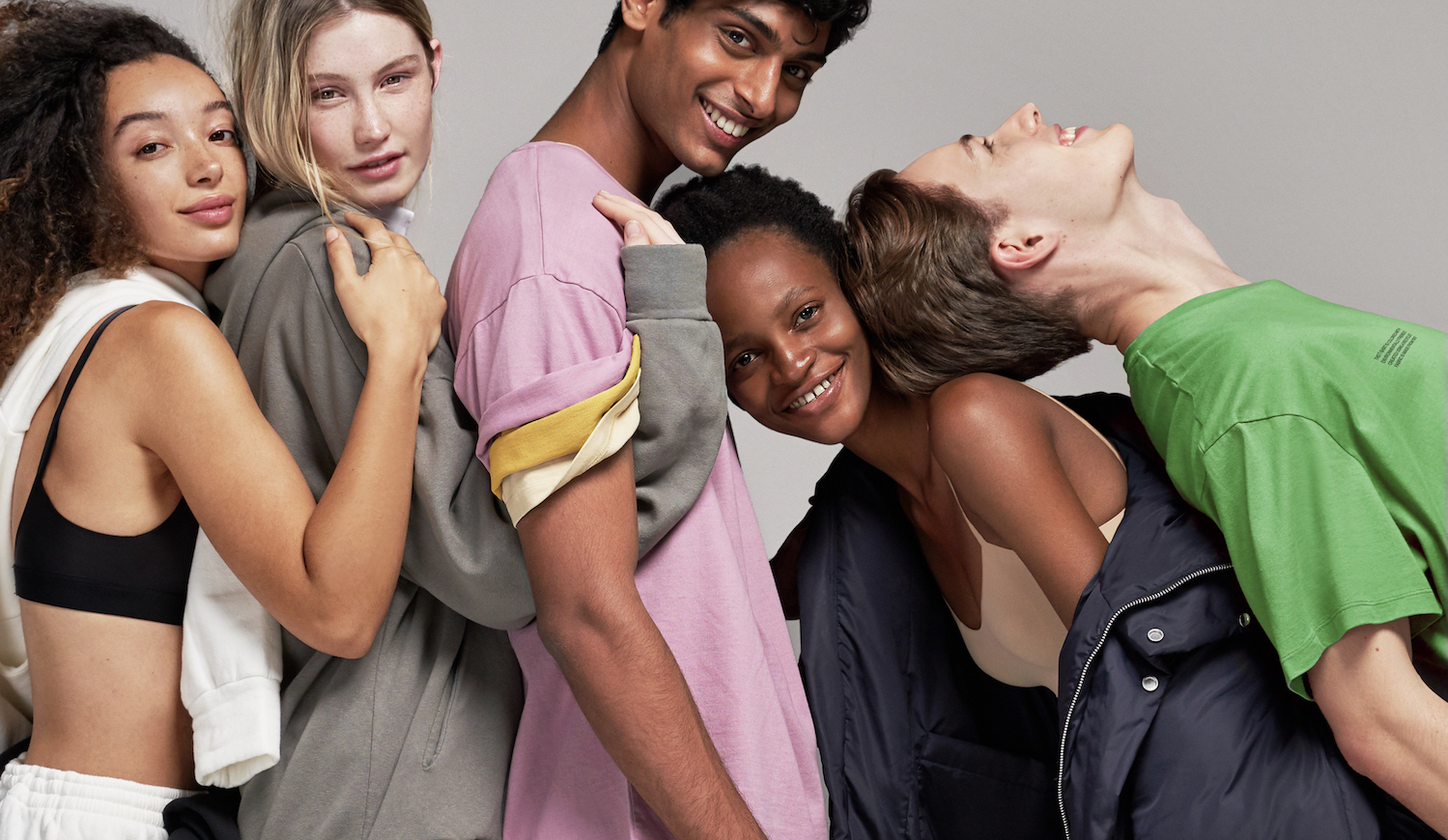Consumer habits are changing and brands are taking notice. People are no longer demanding products. They demand transparency and they buy into a brand’s identity and set of values. As more designers continue to push the limits of what clothes can be made from, we are seeing a shift in the world of fashion. Joining the ranks of a growing roster of ethical fashion brands is PANGAIA, a collective that brings together scientists, technologists, artists and designers alike, all with a likeminded mission to create a responsible wardrobe manufactured from renewable and alternative resources such as bio and lab-grown materials. The brand has taken social media over by storm and has been so popular, that each launch and restock gets snapped up pretty quickly.
The future of sustainable fashion is bright and the more information that’s available, the easier it is for people to get on board and understand where sustainable fashion has come from and how to incorporate it into their future. I spoke to Dr. Amanda Parkes, a Chief Innovation Officer of PANGAIA, about new technologies, sustainability and pushing the limits.
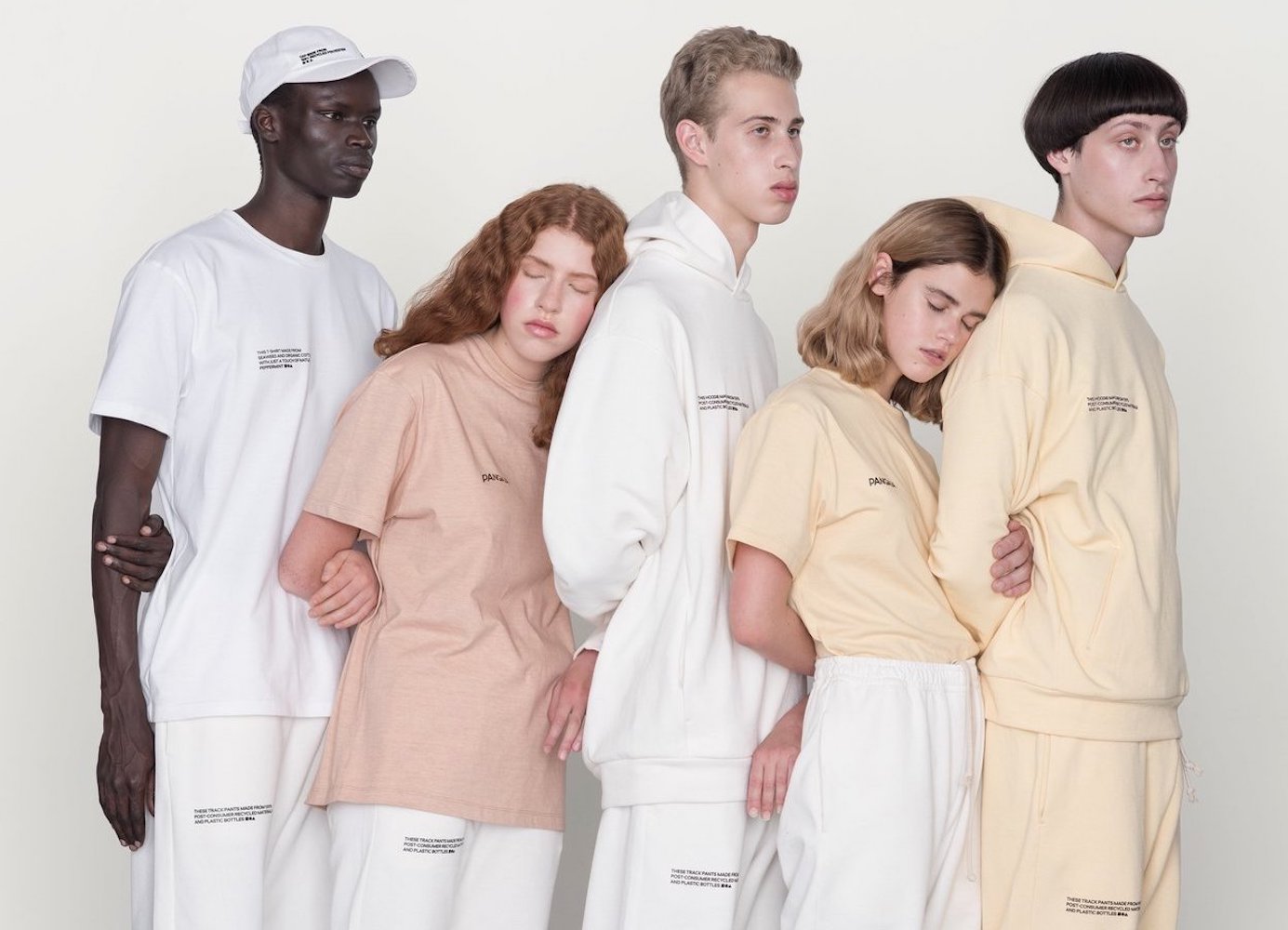
PANGAIA is a hybrid company, apparently the first of its kind. Can you please elaborate?
PANGAIA, as a materials science brand, is bringing innovations to life through products of everyday use. We develop our very own proprietary materials and technologies in-house, as well as build on science developed to date. Commercialising research/innovation that we plan to open source to other companies and industries is one of the key focus areas for PANGAIA. We are creating a new business model and a way to springboard new technologies and push forward their adoption on a global scale.
What does sustainability mean to the PANGAIA team?
We need a lot of people doing some things better rather than a few people doing everything perfectly – change comes from the collective behavior of people and our joint commitment to evolving systems. Personally we follow what we hope is becoming the standard wisdom-things like use less plastic, don’t buy synthetics, eat vegan as much as possible, engage in systems of the shared economy which promote sustainable behaviour. In general, we don’t subscribe to the notion that sustainability needs to be defined by shutting down production and consumption. While we should all act and buy in moderation, we still need to be able to celebrate beauty, personal expression, and everything that makes fashion a wonderful art form, we should be concentrating on making appropriate material solutions that still allow us to create. What frustrates me, most as a scientist, is knowing that technical solutions exist but systems governed by policy, economics, and general lack of education and understanding are keeping us from living in a world of abundance.
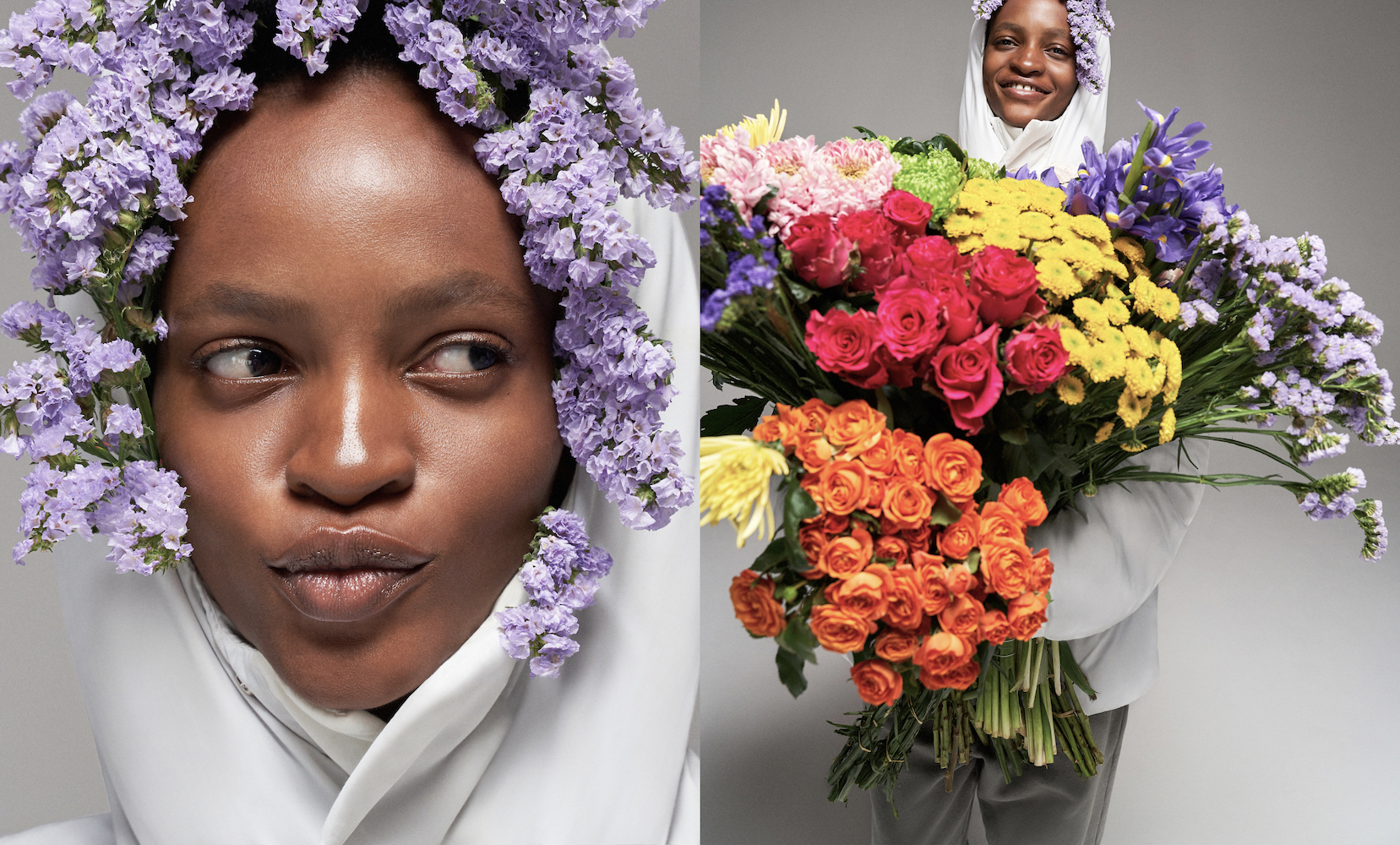
I’ve read about your new vegan technology – FLWRDWN, a biodegradable filling made with natural wildflowers. Love the idea! How exactly does it work?
FLWRDWNTM is a breakthrough vegan technology, bringing together science and nature to achieve a soft microstructure material with extraordinary thermal insulation properties. It is certified hypoallergenic, fully breathable and has great biocompatibility with human skin. Following 10 years of extensive in-lab research and development by PANGAIA scientists, FLWRDWNTM is a proprietary cruelty- free alternative to goose and duck down. The wild flowers we source are from areas which contribute to habitat restoration, whilst helping to conserve a species of local butterflies. This kind of regenerative agriculture results in a reduction of greenhouse gas production (12 tons of CO2 per hectare of plant material). The farming method also helps to preserve groundwater, as it doesn’t require irrigation to grow. Our current product offer includes FLWRDWN puffer jackets, seaweed fibre t-shirts and recycled cotton hoodies.
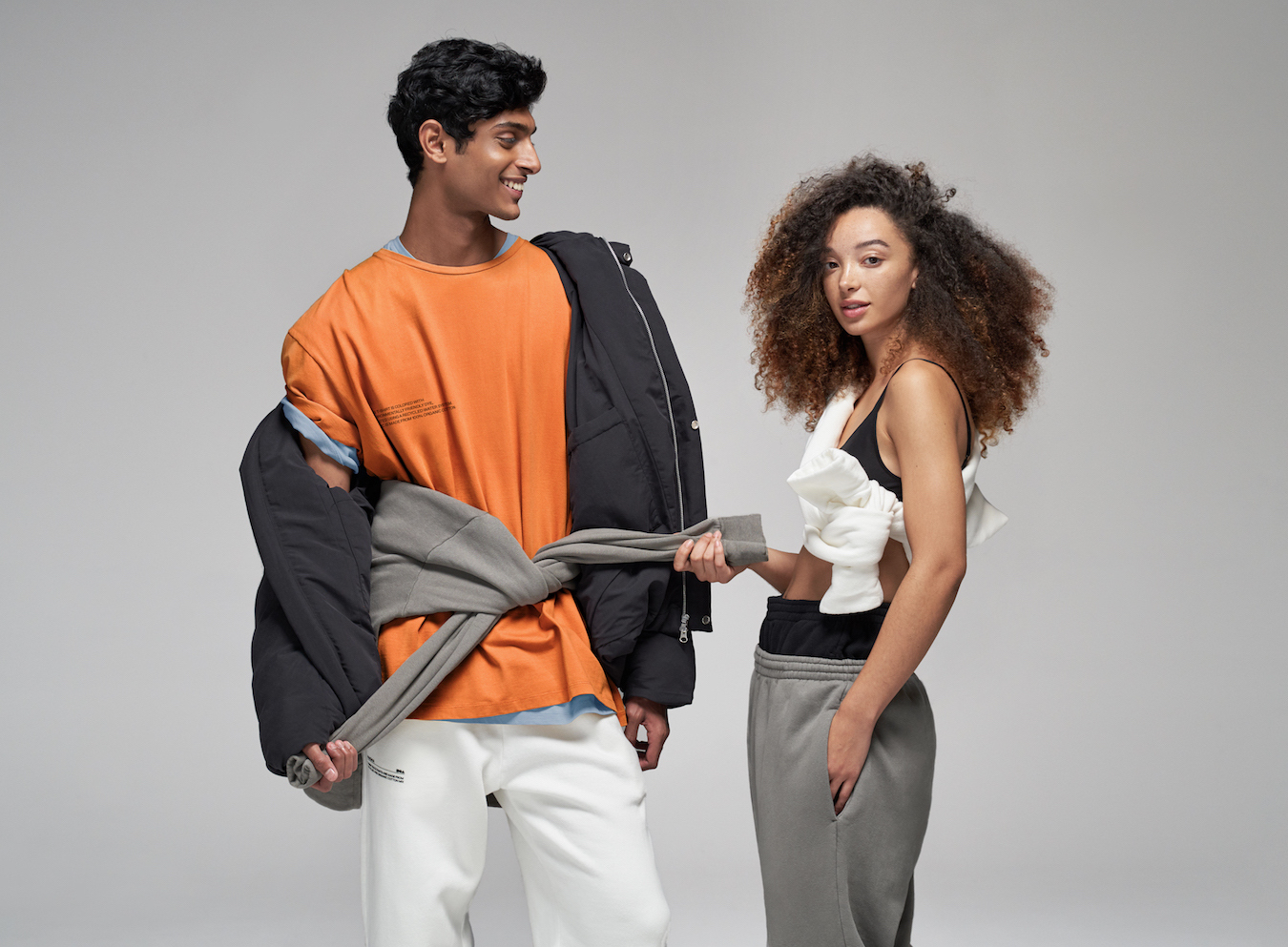
Can you also talk a bit about your seaweed fibre t-shirts?
We are very proud of our patented seaweed fibre t-shirts – which gives ultimate wearing comfort due to its soft feel and great moisture absorption. It also wears and washes well and is biodegradable and compostable. It’s inventors also believe that it has a positive effect on the body when worn next to the skin. Saltwater seaweed is rich in essential substances (like vitamins, antioxidants, trace elements, amino acids and minerals) which are known to have many positive effects. They can help protect us against some of everyday life’s environmental influences such as free radicals, and help to activate cell regeneration, which in turn can help to relieve skin diseases, reduce inflammation and soothe itchiness. The inventors believe the natural moisture level of the body could enable an active exchange of these beneficial substances between fiber and skin, providing noticeable benefits. Where we use color, we only use natural dyes, and these have been created from food waste and natural resources. Plants, fruits and vegetables help to achieve richly hued tones which work well together – from sakura blossom pink, to madder root red. Our supplier dyes textiles in a way that uses less water, is non-toxic and biodegradable. All our garment logos and prints are also created with water-based PVC-free ink. We always respect the Restrictive Substance List.
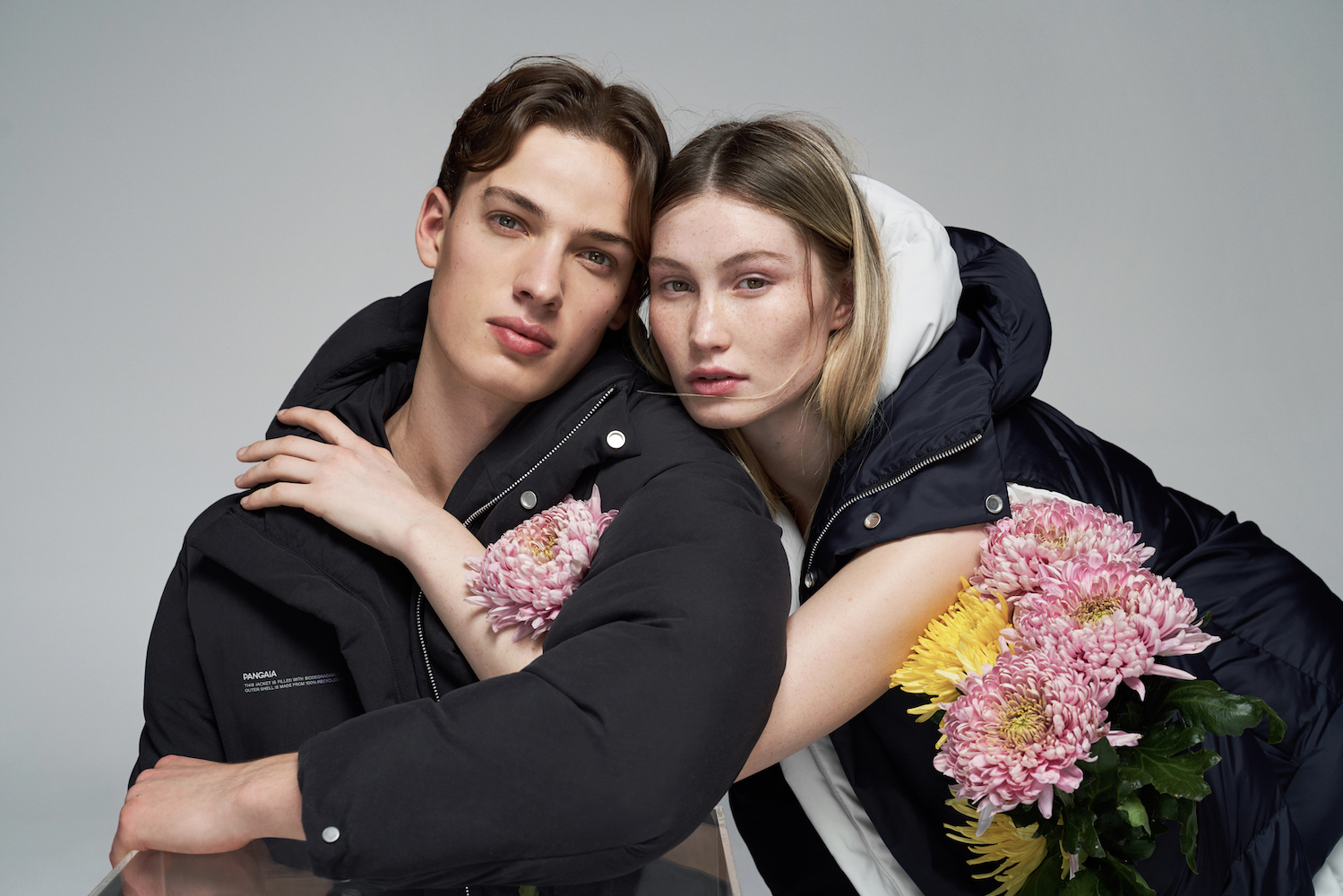
Things have changed. The conscious consumer now wants to know the origins and journey their products have been on. Where are your items typically made?
We have our own lab in Florence, Italy where we develop our very own proprietary materials and technologies in-house, as well as build on science developed to date.
How do you maintain a zero-waste production process?
From a scientific point of view, decarbonization and the eradication of fossil fuels lie at the heart of what we are doing as a brand. This informs our priorities and guides our product decisions around creating a sustainable supply chain- which can range from avoiding the inclusion of anything that contributes to microplastics or seeking production facilities powered by alternative energy sources. Our philanthropy approach is driven by cause for action against global climate crisis (UN Sustainable Development Goal 13 – Climate Action). We all know it is now in a geo-political emergency. We have just launched an ongoing partnership with an amazing San Francisco based organisation called SeaTrees. For each product sold, we plant 1 mangrove tree with SeaTrees on the customer’s behalf. One mangrove tree stores up to 1 ton of CO2. So, 1 product purchased = 1 mangrove tree planted = 1 ton CO2 stored. Which is equal to a flight from London to NYC, imagine that. It is a joint effort to help reverse climate change — by restoring, planting and protecting coastal ecosystems which store CO2 in the most efficient & effective way. Mangrove forests are 5x more effective at storing carbon compared to tropical forests. And we are taking our customers on this journey with us, giving them the opportunity to do something better for the environment. This year we are going to announce that we are a carbon neutral or even carbon negative business – and we are nearly there!

And lastly, what are the next environmental problems PANGAIA aims to solve? And any other future plans?
We are still a pretty young company, we are focused on developing and introducing breakthrough textile innovations and patents into the world through everyday lifestyle products. What we launched with about a year ago is effectively an experiment with seaweed fiber which we turned into a fabric and into a t-shirt, which became our MVP – the Seaweed Fiber T-shirt treated with peppermint oil to keep it fresh longer. Then we added a collection of t-shirts and hoodies/track pants dyed with botanical colors, our FLWRDWN™️ puffer jackets etc. All our products are beautifully designed, with as many innovative, responsible, recycled and recyclable elements as possible, packaged in a compostable part bio-based alternative to plastic. We have some big partnerships in the works for this year that we are extremely excited about, including some artist collaborations. Other future plans include category expansion into accessories, jewelry, beauty, furniture, space!
xxx
Photos: PANGAIA
